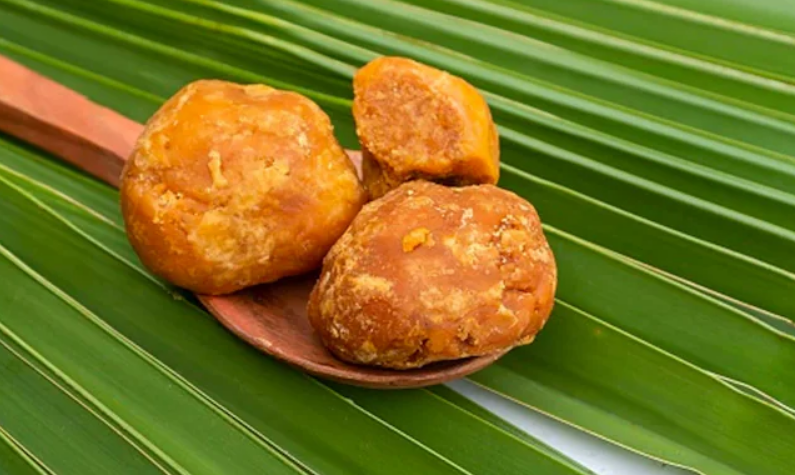Jaggery, also popularly known in India as “gur,” is a natural sweetener from the juice of sugarcane or the sap of palm trees. Unlike white sugar, it is minimally processed and still holds trace amounts of minerals that are needed by the body, such as iron, potassium, and magnesium. Although people have claimed jaggery to be better than white sugar because of trace nutrients, understanding its effect on blood sugar levels, especially in diabetics, is very important.
Although it's a natural product, jaggery contains a high GI and is sugar, primarily sucrose. It leads to sharp spikes in blood sugar, so it's not the best fit for people suffering from diabetes. Let's check out the top 10 reasons why this product should be avoided by people with diabetes.
10 Reasons why diabetics should avoid jaggery
- High Glycemic Index
Jaggery is also a similar index of glycemic like refined sugar that raises blood sugar levels pretty fast. For diabetic patients, stable blood sugar is of utmost importance. High-GI foods such as jaggery cause rapid rises, making it difficult to maintain the well-being of diabetics.
- High Sucrose Content
Jaggery is primarily sucrose, which breaks down readily in the blood to glucose. It pushes up the blood sugar levels quickly; this is a serious danger that threatens the safety of diabetics whose sugar supply needs to be kept strictly under control to prevent hyperglycemia.
- Poor Regulation of Blood Sugar
Although jaggery is less processed than white sugar, it has approximately the same effect on blood sugar. Consuming jaggery would interfere with the effective management of blood sugar levels in diabetic patients.
- Causes Insulin Resistance
Long-term consumption of jaggery can lead to high sugar in the blood, even exacerbating insulin resistance: this occurs when the cells, for several reasons, don't respond well to insulin. Diabetics who have other issues with impaired insulin function would likely become worse with the condition if they consume jaggery.
- Hidden Calories
Jaggery is high-calorie and intake with constant intervals causes an increase in weight. Excess weight is highly associated with low insulin sensitivity, which therefore complicates the management of diabetes. For patients with diabetes, it is very essential to be barred from taking foods that are calorie-rich like jaggery.
- Low Nutritional Benefit
Though jaggery contains trace minerals in its iron and magnesium content, the values are not significant enough to compensate for the high sugar content. Diabetics can get their daily dose of minerals such as these through more nourishing, low-GI foods like leafy greens, nuts, and seeds, without spiking the blood sugar levels.
- Potential Risk of Postprandial Hyperglycemia
Hyperglycemia or high blood sugar after eating is a common problem for patients with diabetes. Even a small amount of jaggery causes hyperglycemia, and it is very challenging to gain control over the level of sugar contributing to the risk of complications.
- Triggers Sugar Cravings
The sweet taste of jaggery may evoke cravings for other sweet foods, thus resulting in less one's ability to resist indulgence. Regarding diabetics, craving management is one of the things that help them stay on course regarding diet balance and eating foods that are known to destabilize blood sugar.
- Can Cause Overindulgence
Many confuse jaggery as a healthier alternative to sugar, which becomes one of the complicating factors; however, its impact on blood sugar levels is nearly similar to that of white sugar. Overshooting the amount may make the disease more worrisome and harder to control in the long term.
- Long Term Complications
High blood sugar due to jaggery consumption over a long time tends to increase the risks for chronic complications, such as cardiovascular disease, kidney damage, and nerve problems. The best step for avoiding these risks and giving healthier results in diabetes patients is to avoid jaggery.
Healthier Sweet Options for Diabetics
There are several low-GI alternatives for jaggery for diabetic patients who do not mind giving up sweetness while controlling their blood sugar, including.
- Stevia: It originates from the stevia plant and is a zero-calorie sweetener. It does not raise blood sugar levels.
- Erythritol: A sugar alcohol, this has very minimal effects on glucose levels in the body so safe to consume for diabetes-diagnosed people.
- Monk Fruit Sweetener: This is another natural low-calorie sweetener that will not adversely affect the blood sugar level of a person either.
- The alternates used in this way will always help cure diabetic diet potential by meeting some sweet cravings with results free from jaggery and sugar.




